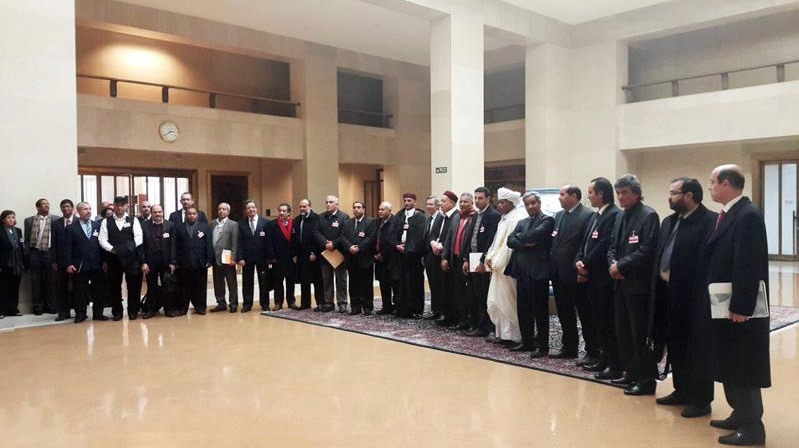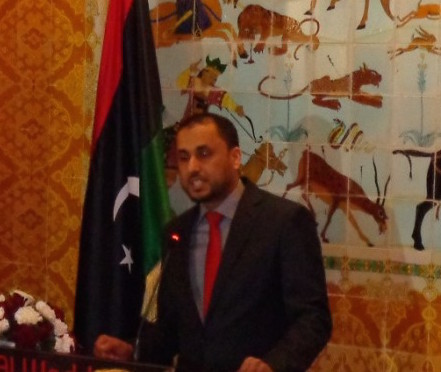By Libya Herald reporters.

Geneva, 29 January 2015:
Delegates taking part in the political dialogue in Geneva brokered by the UN have agreed . . .[restrict]that future meetings should take place in Libya, provided that the location is secure and has adequate facilities.
“It could be in Misrata,” one delegate from Cyrenaica told the Libya Herald on condition of anonymity adding that the proposal had been discussed by the various participants.
“We’re leaving it to UNSMIL to decide,” he said. “If they find a place that is secure, then it won’t be a problem.”
It would take more than a week for UNSMIL to come up with a potential venue, he suggested. In the meantime, the military representatives invited by UNSMIL head Bernardino Leon to the talks would meet in Geneva. Tribal and other representatives would also be meeting, although that could be in Libya, he said. Thereafter, the political delegates would then meet again.
Yesterday, Wednesday, and today saw representatives, mainly mayors, from a number of Libyan municipalities take part in the dialogue. These comprised Central Tripoli, Benghazi, Misrata and Sebha as well as Ajdabiya, Azziziya, Beida, Ghat, Gasr Ben Gashir, Marj, Qatrun, Tawergha and Tobruk.
Municipalities invited but which did not turn up include Janzour, Nalut, Suq Al-Juma, Tajoura and Zawia.
Referring to them and others invited but planning not to attend, UNSMIL called on “all stakeholders to join the talks in an open and constructive spirit”.
According to sources at the talks, there was a major row after the Misratan representative objected to the presence of the mayor of Ajdabiya, Salam Jadhran, the brother of Ibrahim Jadhran who closed down the eastern oil terminals. The row was, however, eventually settled and the delegates continued their discussions.
Both the municipal and the political delegates later joined together for talks on the next stages, including the confidence building measures agreed during the first round of the dialogue.
In a statement on the municipal representatives’ meeting, UNSMIL said that they had agreed to establish working groups “to follow up on their efforts to improve the lives of the Libyans who have suffered so much and have lost loved ones and property, and were forced to flee their homes”.
After explaining the problems their communities were experiencing because of the conflict such as shortages in services, food and fuel, as well as insecurity, the delegates had agreed, the UNSMIL statement read, “to send an unequivocal message to all Libyans that they came to Geneva to help in the quest for peace and that they are capable of contributing to that, each in his respective position and area of responsibility”.
This is a clear rejection of the position taken by the rump Congress and the Hassi regime that the municipal delegates had not right to go to Geneva and had nothing to contribute to the deliberations there.
Reaffirming their role in the dialogue, the representatives also agreed “to send a clear message to all conflicting parties to listen to the call by the elected mayors and representatives, who are closer to their constituencies and aware of their needs and their aspirations, that now is the time to stop fighting and to seize the opportunity for peace presented by the dialogue. They stressed that an immediate cessation of hostilities would allow the municipalities and local councils to cater to the urgent needs of the population, particularly the vulnerable segment such as the wounded and the displaced.” [/restrict]









